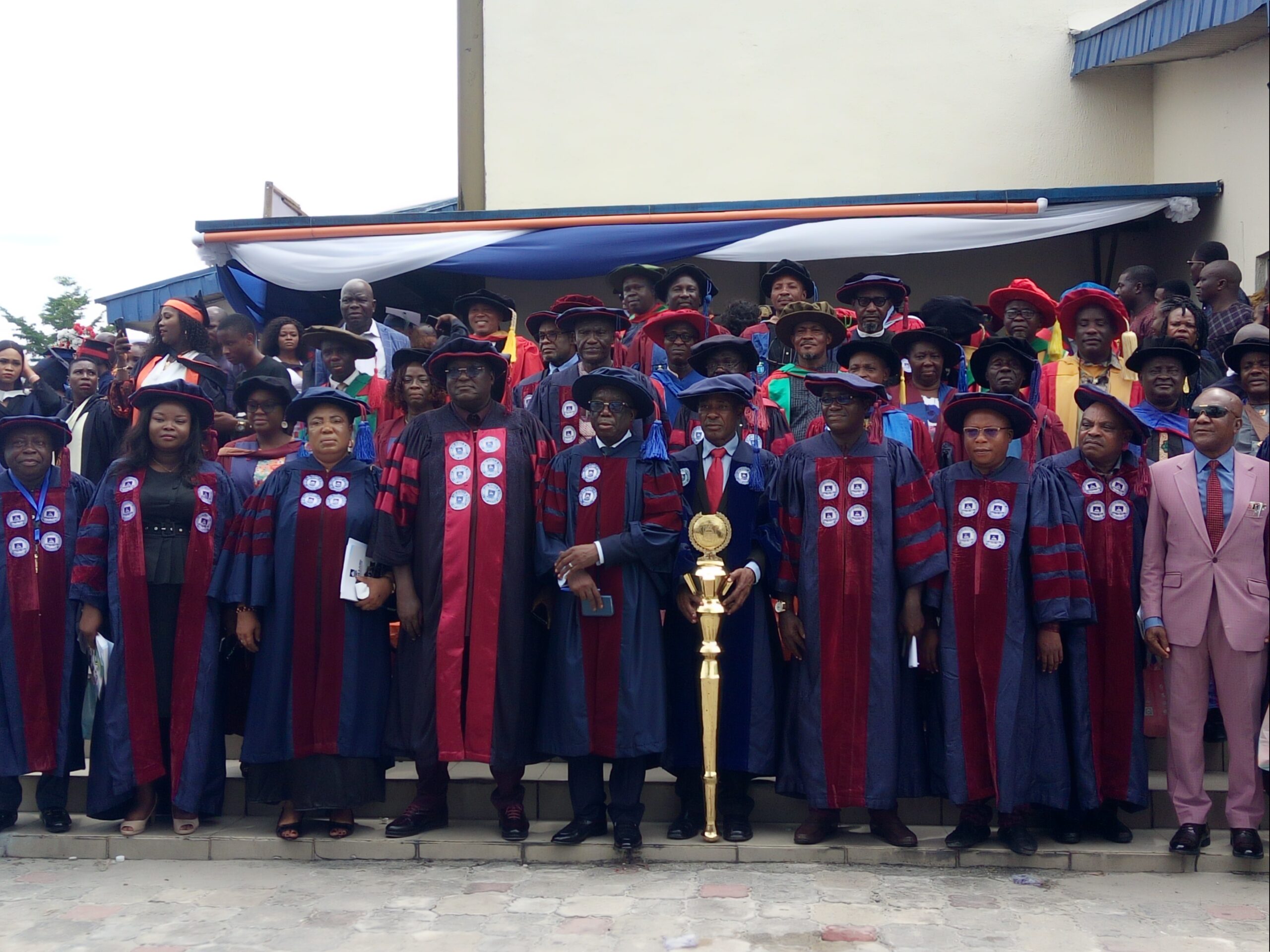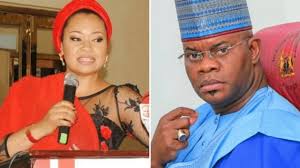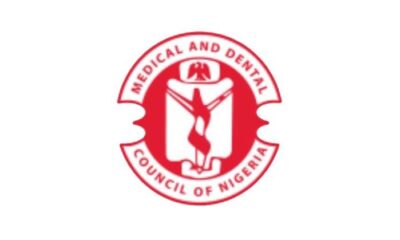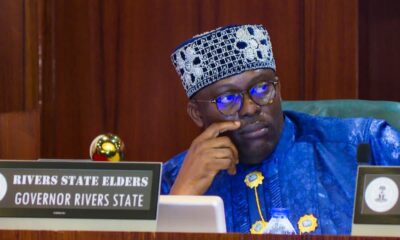Education
Don Charges FG On Solid Minerals Dev
A university lecturer, Dr Francis Beka, has urged the Federal Government to demonstrate strong commitment for accelerated development of the solid minerals sector by allocating about 5% of the nation’s oil revenue to the growth of the sector.
Beka, who is of the Department of Geology and Centre for Petroleum Geosciences, University of Port Harcourt made the recommendation in Port Harcourt while delivering a keynote address in a sensitisation workshop organised by the Raw Materials Research and Development Council (RMRDC).
In his paper titled “Rationale for Effective Appraisal of Nigeria’s Solid Mineral Resource Potential for Raw Materials Development,” Beka reiterated the urgent need to plough the excess funds from the oil and gas sector to grow the solid minerals base as a parallel sector to further enhance the future of Nigerian economic development further recommended that coal should contribute at least 25% to the power generation mix in Nigeria, noting that the nation has over 650 million tons of proven reserves of coal while coal resources alone contribute about 70% to power generation in the world.
“Today, the solid minerals sector has suffered unprecedented neglect because of the ready availability of easy funds for the growth of the petroleum sector,” he said, adding that if tapped, the much reserves of solid minerals sector would create teeming employment, help to stem poverty, reduce urban migration and conflicts in the country.
The window of opportunities associated with the growth of the mineral resource sector, he explained, was wide and cutting across the realm of national development issues especially in the anticipated key growth areas of infrastructure development, human capacity building, institutional capacity strengthening, including support sectors as well as community growth and sustainable development.
Raising alarm over possible drying of the nation’s oil wells in future, the lecturer said the wisest thing was to develop other sectors on which base would lean the economic survival of our country and urged government to turn substantial attention to other sectors instead of continued dependence on the oil and gas sector.
He also urged government to put in place the enabling environment that would encourage private sector participation and investment in the solid minerals sector stressing that raw materials development from the solid mineral sector is a key area that is crying for national attention.
In his remark, Rivers State Co-ordinator of RMRDC, Mrs Felicia Chilaka said outside oil and gas, Rivers State had abundant reserves of solid minerals waiting to be tapped and challenged investors to take advantage of the situation.
She also called for reviving of the moribund state owned West African Glass Industry as the raw material needed was largely sand noting that if done, it would create employment, create wealth and expand market for glass products amongst other advantages.
Participants commended the council for the programme and charged RMRDC to come up more regularly with such workshop. They also pleaded that the council should develop raw materials resources map of Rivers State to guide investors as well as extending the programmes to local government areas and local communities.
Education
Former VC Advocates Drug Test For University Lecturers

Prof. Muhammad AbdulAziz, the immediate past Vice Chancellor of Abubakar Tafawa Balewa University (ATBU), Bauchi state, has advocated drug tests for lecturers to sanitise the university system.
Mr AbdulAziz stated this in a valedictory speech to the Senate of the University at a handing-over ceremony to his successor, Prof. Sani Kunya, the new acting Vice Chancellor of the institution.
While commending the decision by the Federal Ministry of Education to introduce drug tests for students seeking admission to all universities, he said such tests should be extended to lecturers.
According to him, it would further sanitise the university system and promote sanctity and academic excellence.
“We have discussed with the Federal Ministry of Education and they want to introduce to all universities that before any student would be registered in the universities, he or she must undergo drug tests.
“If students should undergo drug tests, I believe that even some of us, the lecturers, need to undergo the same test so that we know our status.
“We also have to volunteer ourselves to have this test done on us because we have to sanitise the university.
“If the students are to be subjected to drug tests to determine their mental health status, nothing is wrong if the lecturers too are subjected to the same test.
That is the only way to check excesses in the university system,” he said.
Mr AbdulAziz said the modest achievements recorded during his tenure were in the areas of infrastructural development, academic content development and community services.
He said the achievements recorded could not have been made possible without the support of all stakeholders in the system.
He appreciated the federal government for the support rendered to the University through the Federal Ministry of Education and its various agencies like the National Universities Commission and the Tertiary Education Trust Fund.
Read Also:Students to undertake drug test before admission UniAbuja
Also speaking, the new acting VC of the university expressed gratitude to the Senate for finding him worthy of the honour and to the federal government for his confirmation.
“I want to assure you that I will justify the confidence reposed in me by not disappointing you all.
Education
Don Seeks 20%Increased Budget Allocation To Education

A Professor of Economics in the Faculty of Social Sciences University of Port Harcourt, Rivers State, Prof Willie J. Okowa has called on government at all levels to increase her Education sectorial budgetary allocation to twenty percent of their annual budget , saying that such efforts will improve the development of education in the country.
Okowa said each government wether local, state or federal governments should devote an increased proportion of her annual budget to education such that in the next five to ten years , so that we can see at least 20 percent of her budget to the education sector.
He made this call while presenting the 42nd convocation lectures at the just concluded Iaue convocation ceremonies held at the university auditorium in port harcourt, recently.
He posisted that the economy has a nexus with sustainable higher education to the effect that a robust economy plays a key role in the sustainability of higher .education , while a sustainable higher education plays a supportive economic growth and development
“On the hand,a failing economy can hardly support a sustainable higher education”.
According to him ,a growing economy easily provides the finances to fund sustainable higher education while a education provides the relevant skills and the manpower needs required to propel economic growth and development,”of course, The Inadequate provision of higher educational facilities will fail to the manpower needs required by the economy to support its growth and development”
“The ability of an economy to adquately find higher education also depends on the rate of the population ,the higher the rate of growth of population, the more the number of the people that require higher education .Hence ,a rapid population growth puts more pressure on the ability of the economy to adquately fund higher education, irrespective of its performance.”
“Population growth , economic growth and the adequate funding of higher education are therefore intricately interlinked.The adequacy of the funds that an economy provides to finance higher education also depends on how well the managers of our education institutions manage such funds.
If people who lack character , integrity and merit are appointed to helms of affairs institutions,then funds can hardly be adequate .on the other hands ,if people of character, integrity and merit are given such appointments ,then the outcome will be much better” he stated.
The erudite scholar opined that Nigerian universities and colleges are also passing through strange times and outlined outdated laboratories , inadequate classrooms, adding that many students involved in drugs and prostitution.
By: Akujobi Amadi
Education
Bauchi Govt Threatens To Revoke Scholarship Of Unserious Students

The Bauchi State government has cautioned that it will cease payment of external exam fees for Senior Secondary Three, SS3 students found skipping classes.
Commissioner for Education, Jamila Dahiru gave the warning in Bauchi during her school resumption inspection and monitoring visits to some schools on Wednesday.
The Tide’s source recalls that Governor Bala Mohammed earlier allocated N396.9 million for the 2023/2024 external exams of 14,170 students in public schools.
The external examinations paid for included the West African Examination Council, WAEC, the National Examination Council l, NECO, National Board for Arabic and Islamic Studies (NBAIS) and the Joint Admissions and Matriculation Board, JAMB.
However, the Commissioner, who was furious with the low level of attendance of especially the SS3 students in some schools, recounted how she met less than 20 percent of the SS3 students who were around when she visited a particular school.
She stressed the need for students to return to class and prepare diligently, threatening to revoke scholarships for ‘unserious ones.’
Her words: “We just realised that most of these students, after being taught from JSS1 to SS3 and with Gov. Bala Mohammed paying for their external exams, and as soon as they were done with their mock exams, they left school and won’t return until the first day of their external exams.
“It is sad to acknowledge that we are not responsible as parents because I want to believe that they have parents who are seeing them attending schools simply because they are getting ready to just write their external examinations.
“We want to make them come back to class, we want to emphasize that we are investing in the right people because it is just telling us that it is the government that bothers about their education while they don’t care and probably their parents that are allowing them to stay at home also do not care.
-

 Nation3 days ago
Nation3 days agoYahaya Bello: Senator Hails EFCC’s Probe Of N80.2bn Fraud
-

 Niger Delta3 days ago
Niger Delta3 days agoMDCN Clears Asaba Specialist Hospital As Novena University Teaching Hospital
-

 Politics3 days ago
Politics3 days agoFubara Tasks Rivers Stakeholders On Political, Economic Emancipation …Commissions NAVAL Training Command Headquarters At Ebubu
-

 Foreign3 days ago
Foreign3 days agoMunitions Explosion At Cambodian Army Base Kills 20 soldiers
-

 Oil & Energy3 days ago
Oil & Energy3 days agoNigeria Loses Over 300,000 Barrels Of Crude Oil Daily To Theft – Abbas
-

 News3 days ago
News3 days agoFubara Tasks GPDA On Prosperous, Liveable City
-

 Environment3 days ago
Environment3 days agoWED:Activists Task Govt On Plastic Pollution, Synophom Ban
-
Business3 days ago
NCDMB, SON Maintain Lead In Business Efficiency Ranking

